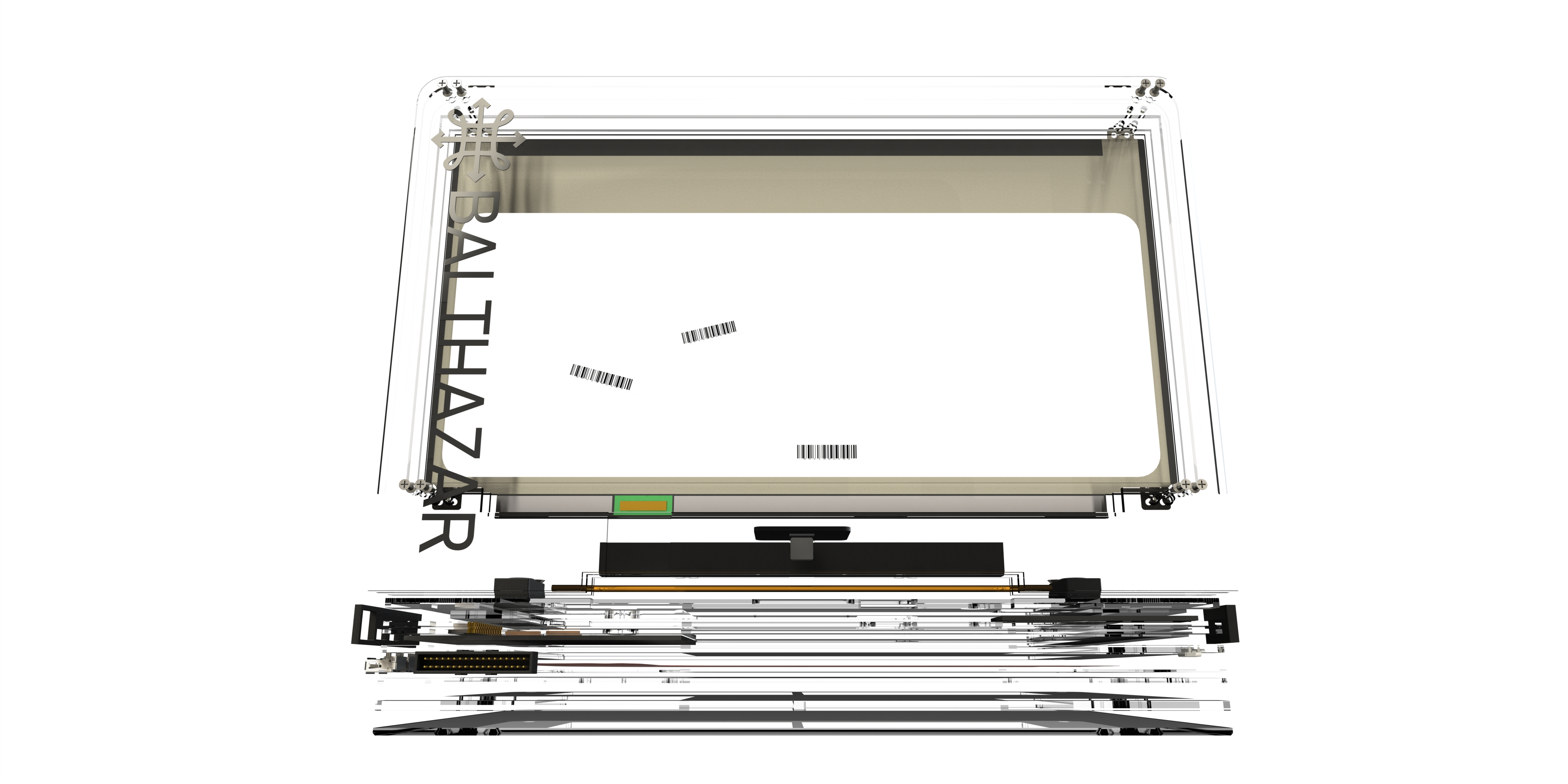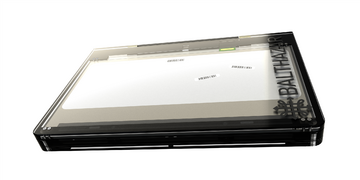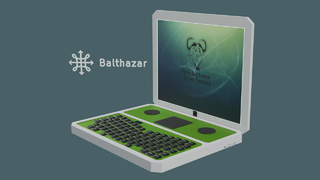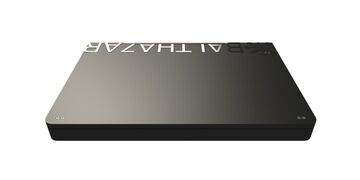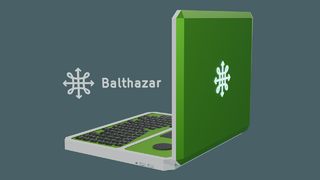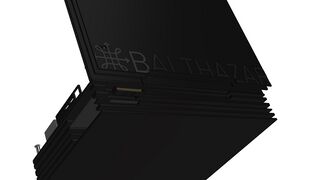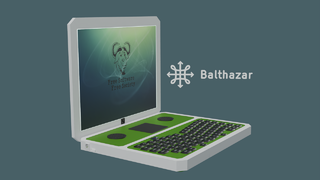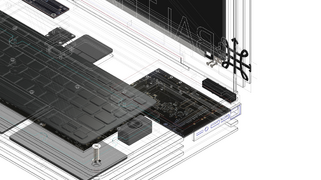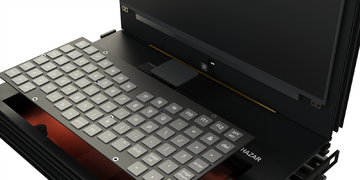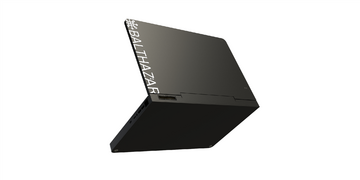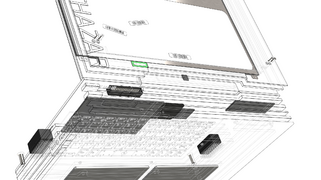|
|
| (125 intermediate revisions by 3 users not shown) |
| Line 1: |
Line 1: |
| − | == <strong>Balthazar - a Personal Computing Device</strong> ==
| + | __NOTOC__ |
| | | | |
| | + | <center>[[Image:Blogo2.png]]</center> |
| | | | |
| − | <strong>One laptop for the new internet.</strong> | + | == <center><strong>a Personal Computing Device</strong></center> == |
| | | | |
| − | <strong>Secure, fast, inexpensive. Pick all three.</strong><br> | + | <center><strong><big>One laptop for the new internet.</big></strong></center> |
| | + | |
| | + | |
| | + | <center>Secure, fast, inexpensive, open, robust, upgradeable, and sustainable. All of that.</center> |
| | | | |
| − | BPCD - Balthazar Personal Computing Device is a 13.3" laptop based on RiscV processor(s) that contains all the hardware and software features and precautions to prevent any 3rd party intrusion into the system.
| |
| − | While being versatile and robust it also strictly follows CC, GNU-GPL, FOSS and EOMA guidelines.<br>
| |
| − |
| |
| | | | |
| − | <strong>Why yet another laptop?</strong><br> | + | [[File:47B.png|center|prototype]] |
| | + | <gallery mode=packed class=selectable> |
| | + | File:51B.png |
| | + | File:P2.resized.png |
| | + | File:12.JPG |
| | + | File:P1.resized.png |
| | + | File:13.JPG |
| | + | File:P4.resized.png |
| | + | File:Resized14.png |
| | + | File:40B.png |
| | + | File:18b.png |
| | + | File:19t.png |
| | + | </gallery> |
| | | | |
| − | It is very expensive to buy an “advanced” or a secure laptop and it comes with usually "customised" and mostly propitiatory software that bounds a user to a manufacturer, this is where BPCD comes in at the most possible lowest price that should be available to everyone from an individual up to a large institutions.<br>
| |
| | | | |
| − | <strong>But we have already have inexpensive netbooks, picturebooks, tablets, Chromebooks and alike!</strong><br>
| + | '''BPCD''' - '''B'''althazar '''P'''ersonal '''C'''omputing '''D'''evice is a '''13.3"''' upgradable and expandable laptop that is based on a few concepts inspired by '''[https://www.crowdsupply.com/eoma68/micro-desktop/updates/2-7-5-cards-under-way-nlnet-and-intel-compute-card EOMA68]''', but powered by [https://riscv.org/ RISC-V] processor(s) open architecture or FPGA boards running emulation as a Computing Module Standard boards and other Systems on a Module that run on '''[https://www.linux.org Linux OS]''' or all of those running together with added co-processing power such as FPGA Lattice Diamond - [https://radiona.org/ulx3s/ ULX3S] and the upcoming of the new ULX4 in a Compute Module form factor. |
| | | | |
| − | Google, Samsung, Acer, Dell and the other respective partners did indeed made inexpensive and lightweight laptops, but they are locked in a certain software and hardware ecosystems and actually offer not so many security features while appearing less flexible towards full FOSS, GNU-GPL and EOMA guidelines that we want to set as another standard. That ethical standard is not based on a profit, but on protecting and also educating population on how not to voluntary disseminate their data all over the interwebs, being used as a bait for large companies that take an advantage of such unconsciousness and irresponsible behaviour.<br>
| + | It contains all the hardware and continuously developing software and firmware features preventing data-theft and any unwanted 3<small>rd</small> party intrusion into the system by default. It should run default low-level security layer software based on [https://gitlab.com/cryptsetup/cryptsetup/blob/master/README.md '''LUKS''' ], [https://libreswan.org/ '''Libreswan'''] and is also envisaged to be '''[http://GNUnet.org/en/about.html GNUnet]''' ready. Its keyboard should be also inter-swappable with known x2xx ThinkPad keyboard replacement via developed adapter and a frame. |
| | | | |
| − | Also those do not work without the internet, so the reputation of such devices is often seen as a "personal data collecting devices", so that doesn't help to create a positive image towards such products.<br>
| + | While being versatile and robust it also follows '''CERN OSHL''', '''GNU-GPL''', '''FOSS''', '''ISA''' and even '''CC''' guidelines. |
| − | | |
| − | BPCD is aimed to inexpensively enable end-user to control all the inputs via physical hardware switches and security dongles, preventing even a remote possibility to have system invaded or spied on by any 3rd party. <br>
| |
| | | | |
| − | <strong>I have nothing to hide. Who should be your target group than?</strong><br> | + | <small>What is all that FOSS and CC and OS…?</small> '''→''' [[Glossary]]<br> |
| | | | |
| − | Here is the answer:<br>
| |
| | | | |
| − | '''1.''' An average basic internet user that requires some default security and develops a certain awareness on its own data privacy and is friendly-forced upon using the security and encryption through the default usage of the device.<br>
| |
| | | | |
| | + | <center><strong><big>'''For all children age 9-99.'''</big></strong></center> |
| | | | |
| − | '''2.''' Advanced computer users, governmental and public workers that need hardware and software features to prevent an intrusion and are skilled and aware enough so they can use all the built in hardware and software features and use additional encryption for official and personal data protection through secure productivity apps and tools.<br>
| |
| | | | |
| | + | Want to know more?<br> |
| | | | |
| − | '''3.''' Educational institutions that will teach online security, privacy and safety. Also that will make use of a device’s connections versatility as in hardware connectivity, as well as in software User Interface and User Expiriance utilising age adoptive “aperture Operating System” and featured secure online in-the-browser Workbench and added to it find the value in overall physical sturdiness and upgrade-ability.<br>
| + | <div style="background: #98bf00; margin: auto; column-count: 3;" class="menue"> |
| − | | + | * [[Goals]], [[Features]] and [[Specifications]] |
| − | TLDR; '''For the children age 9-99.'''<br>
| + | * [[News]] |
| − | | + | * [[FAQ|Frequently asked questions]] |
| − | <strong>Ohh, yet another OLPC thingy I can see upcoming, or...?</strong><br>
| + | * [[Documentation]] and [[Instruction Manual]] |
| − | | + | * [[Links]] and [[Glossary]] |
| − | '''OLPC''' is dead. As a duck. It was slow, underpowered, overdesigned and pretentious.<br>
| + | * [[Contact|Contacts]] |
| − | Also it was not available to everyone and it was a non-intentional neo-colonial tool to be used and abused by one and only - '''Microsoft™''' at the end. Cudos to all people who made it and maintained it so long out of love for reaching out with otherwise good idea on educating children, but they missed that target to be worldwide and all of them, not just patronising African and other developing nations as they did at the beginning, so...no cigar.<br>
| + | * [https://github.com/balthazar-space GitHub pages] |
| − | We want to enable to use and support low-income individuals and communities all over the planet, while carefully partnering with “humaine” and ethical corporations that will buy '''Balthazars''' from us first and then give away, rent or borrow them to those who are unable to afford it.<br>
| + | </div> |
| − | Or, alternatively they can build their own curriculum around '''Balthazar''' ecosystem.<br>
| |
| − | We loosely partner with '''LEGO® Education, Google Education''', various charities, foundations and '''EU''' initiatives, so we hope they can deliver expected behaviour and a practice.<br>
| |
| − | | |
| − | So, '''Balthazar''' is <strong>NOT</strong> '''OLPC'''-alike, but it does follow some of '''OLPC''' product design innovations and features, adopted and improved for today’s performance requirements focusing on privacy, safety and personal data protection and encrypted shared data or a retention of the same in its own “cloud”.<br>
| |
| − | | |
| − | <strong>But... A "Cloud" is free, cool, useful and hype.</strong><br>
| |
| − | | |
| − | Remember - a “Cloud” is just other people’s or corporations’ computers that store your data when you do "share" your stuff with them.<br>
| |
| − | <small>You do not really read small text, do you?</small><br>
| |
| − | | |
| − | <strong>So, why should my child want one?</strong><br>
| |
| − | | |
| − | Education being a very important issue today all over the planet is yet another field where BPCD could make an impact. New generations need to learn and understand the importance of being secure and how to care about their personal data, moreover additional connectors and IO’s also enable them to tinker and create their own devices or program LEGO sensors and actuators while retractable GPIO module, enables them in controlling, testing and programming sensors, actuators and other electronic devices and gadgets from literally every other manufacturer. (Matrix, VeX, Arduino etc.)<br>
| |
| − | | |
| − | Want to know more?<br>
| |
| − | Please read the [[specifications and features]].
| |

